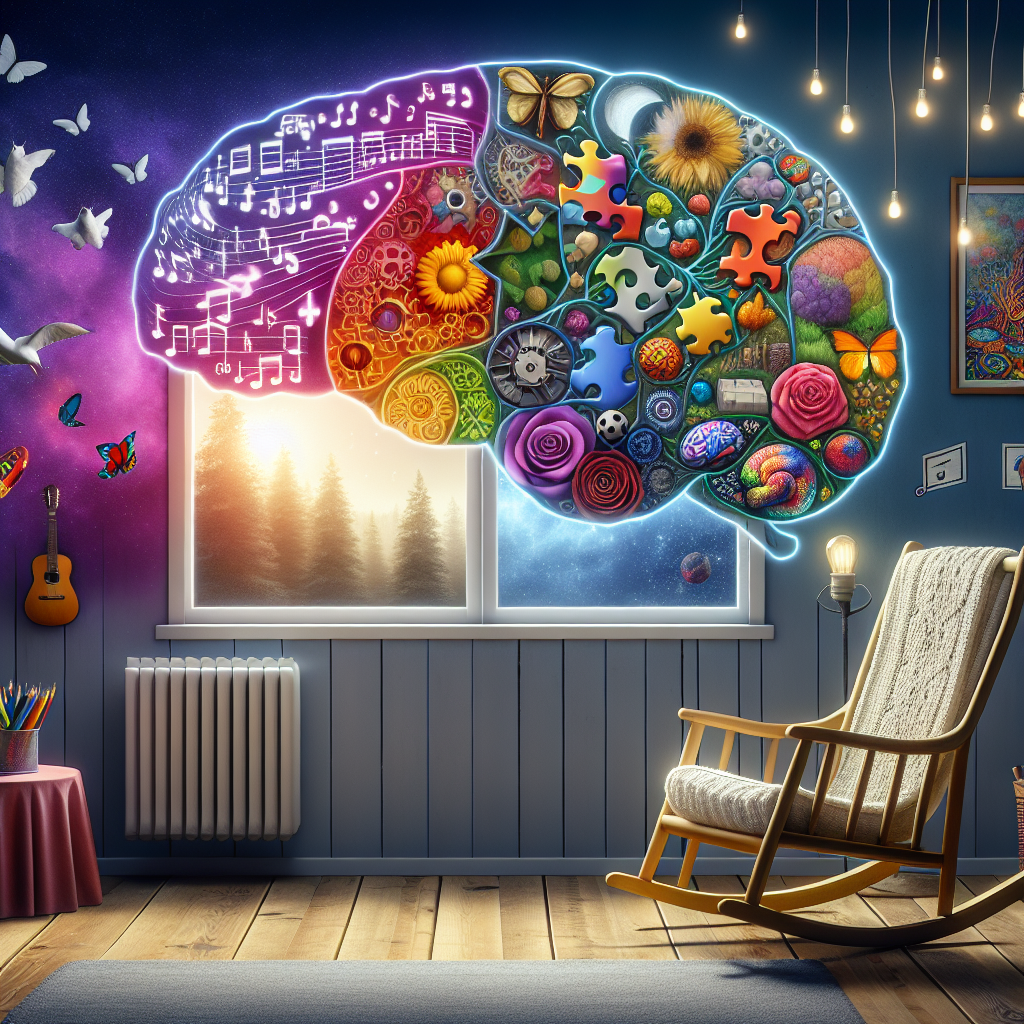What Do Autistic Adults Enjoy Doing? Discovering Their Passions
What do autistic adults enjoy doing? This question digs deep into understanding the unique interests and passions that define the experiences of adults on the autism spectrum. Autistic individuals, much like anyone else, have a rich tapestry of interests, ranging from creative pursuits to analytical hobbies. Their ways of engaging with the world can differ vastly from those of neurotypical individuals, offering refreshing perspectives and specific synergies that resonate with their wired reality. As we explore the various activities that autistic adults enjoy, it’s crucial to recognize that their preferences are as diverse as the individuals themselves. Understanding these can foster better relationships and community interactions, enriching our society as a whole.
In this article, we will explore the multidimensional interests of autistic adults, diving into some recurring themes. We will examine not just hobbies and pastimes, but the deeper connectors of identity these activities can offer. From embracing nature to indulging in creative arts, we will look at the aspects that cater to their unique experiences. So, let’s embark on this insightful journey!
The Connection Between Interests and Identity
When we ask, “What do autistic adults enjoy doing?” we venture into an exploration of how activities can reflect identity. For many on the spectrum, engaging in certain interests allows for profound self-expression and communication. This can often lead to the experience of flow—a mental state where individuals are completely absorbed in the task at hand, often experiencing a sense of joy. Here are some of the primary interests and activities that autistic adults commonly enjoy:
- Hobbies and crafts: Many autistic adults are drawn to hands-on activities such as painting, knitting, or building models. The repetitive, focused nature of these activities provides a calming effect and an avenue for self-expression.
- Technology and gaming: The world of technology is often appealing to autistic individuals. Video games allow not only for escapism but also strategic thinking and social interaction through online platforms.
- Nature and outdoor activities: Nature walks, gardening, and hiking are common interests, providing peace, quiet, and a connection to the natural world.
- Music and performing arts: Musical interests can vary widely—from playing instruments to composing music—offering an emotional outlet and a way to connect with others.
- Collecting: Many autistic adults find joy in collections, whether it be stamps, coins, or comic books. This structured way to engage with interests not only fosters routine but also creates a sense of achievement.
Through these interests, autistic adults express who they are. Activities provide not just enjoyment but also comfort and understanding in a world that can sometimes feel overwhelming. These pursuits often create environments that enable engagement and fulfillment, accommodating their perceptions and preferences.
Creative Outlets: A World of Expression
Another layer to consider when discussing what autistic adults enjoy doing is the realm of creative outlets. Creative expression offers many benefits, including therapy and self-exploration. Here are a few popular creative pursuits:
Artistic Endeavors
Art is a powerful medium that allows for personal expression without the need for verbal communication. Many autistic individuals gravitate toward various forms of artistry, including painting, drawing, and sculpture. The tactile experience of working with different materials often becomes a source of comfort and joy. Art is not just about creating something visually pleasing; it’s about the emotions and thoughts that surface during the creative process.
Take the case of visual arts: many autistic adults find solace in the precision of line work or the blending of colors. They may spend hours working on a piece, immersed in their world, often producing astonishing artwork that tells a story of their perspective and experiences. Art therapy programs have emerged as popular avenues to promote mental well-being, enabling expression in a supportive environment. Autistic adults can often articulate feelings that might be challenging to convey verbally through their art.
Music as a Language
Music, too, serves as a profound form of expression. Whether through playing an instrument, singing, or simply listening, music can be a therapeutic outlet for many autistic adults. Many report that music helps them feel understood and connected. The rhythm and melody provide emotional release and a significant sense of control over surroundings—a refuge from sensory overload.
Autistic adults have diverse interests in music genres, often finding clarity in beats or patterns in melodies that resonate with their experiences. Creating music, either digitally or through traditional methods, provides both a challenge and a deep sense of accomplishment. Many find joy in performances, connecting with audiences and showcasing their talents, often embracing social interaction in a structured and familiar setting.
Social Connections and Community
Social connections play a crucial role in the interests of autistic adults. While socialization can sometimes prove challenging, it doesn’t negate the desire for meaningful relationships and engagements. Here’s how community and social interests manifest:
Support Groups and Networking
Support groups can be invaluable. Autistic adults often appreciate having a space where they can connect with peers who share similar experiences and challenges. These groups often facilitate deeper conversations and mutual understanding, fostering friendships based on common ground. Activities planned within these groups may include outings to art galleries, movie nights, or workshops where they can learn new skills while building functional social networks.
Many organizations are working to create safe, inclusive spaces where autistic adults can connect, share, and nurture friendships without feeling overwhelmed. Often, these networking opportunities center around shared interests—whether it’s gaming, art, or specific hobbies—and offer structured ways for individuals to engage without the pressure of large social settings.
Online Communities
In today’s digital world, online communities are pivotal in what autistic adults enjoy doing. Virtual spaces like forums, social media groups, and gaming platforms allow for increased engagement for those who may prefer remote interaction. This flexibility offers an authentic sense of belonging without the barriers of face-to-face interaction.
Many autistic adults thrive in these environments, particularly in communities focused on shared hobbies or interests. Networking in these communities often leads to collaborations—whether it’s co-writing stories, collaborating on game projects, or participating in themed online art showcases. The anonymity and control of online interaction can often lead to richer exchanges among users.
Conclusion
In addressing the question, “What do autistic adults enjoy doing?” we’ve traversed a wide array of interests that individuals on the autism spectrum might pursue. From hobbies and crafts to immersive creative outlets and meaningful social connections, these activities not only provide enjoyment but also serve as vital avenues for self-expression and community engagement. As we deepen our understanding of these interests, we can foster environments that celebrate neurodiversity and inclusivity.
Recognizing and appreciating the passions of autistic adults enriches our own experiences, teaching us to embrace diversity in perspectives and expressions. It’s essential to remember that autistic individuals are more than their diagnosis; they are unique beings full of interests, dreams, and capabilities. By engaging with their pursuits, we open the door to innovation, creativity, and deeper human connection. So, let’s celebrate what autistic adults enjoy doing, as it not only enhances their lives but also contributes to a more vibrant society.
FAQs
1. What are some common hobbies enjoyable to autistic adults?
Common hobbies include crafting, painting, gaming, playing musical instruments, gardening, and collecting items. These activities provide relaxation and fulfillment.
2. How can family members support the interests of autistic adults?
Family members can show support by encouraging participation in favored activities, attending events together, or providing resources and materials for hobbies.
3. Are there social events tailored for autistic adults?
Yes, many organizations host social events tailored to autistic adults, promoting connection through shared interests in a structured environment.
4. How can art benefit autistic adults?
Art serves as an emotional outlet for autistic adults, allowing them to express feelings that may be hard to verbalize and providing therapeutic benefits.
5. Is it common for autistic adults to engage in online communities?
Absolutely. Many autistic adults find comfort and connection through online communities that match their interests, allowing for socialization at their own pace.





